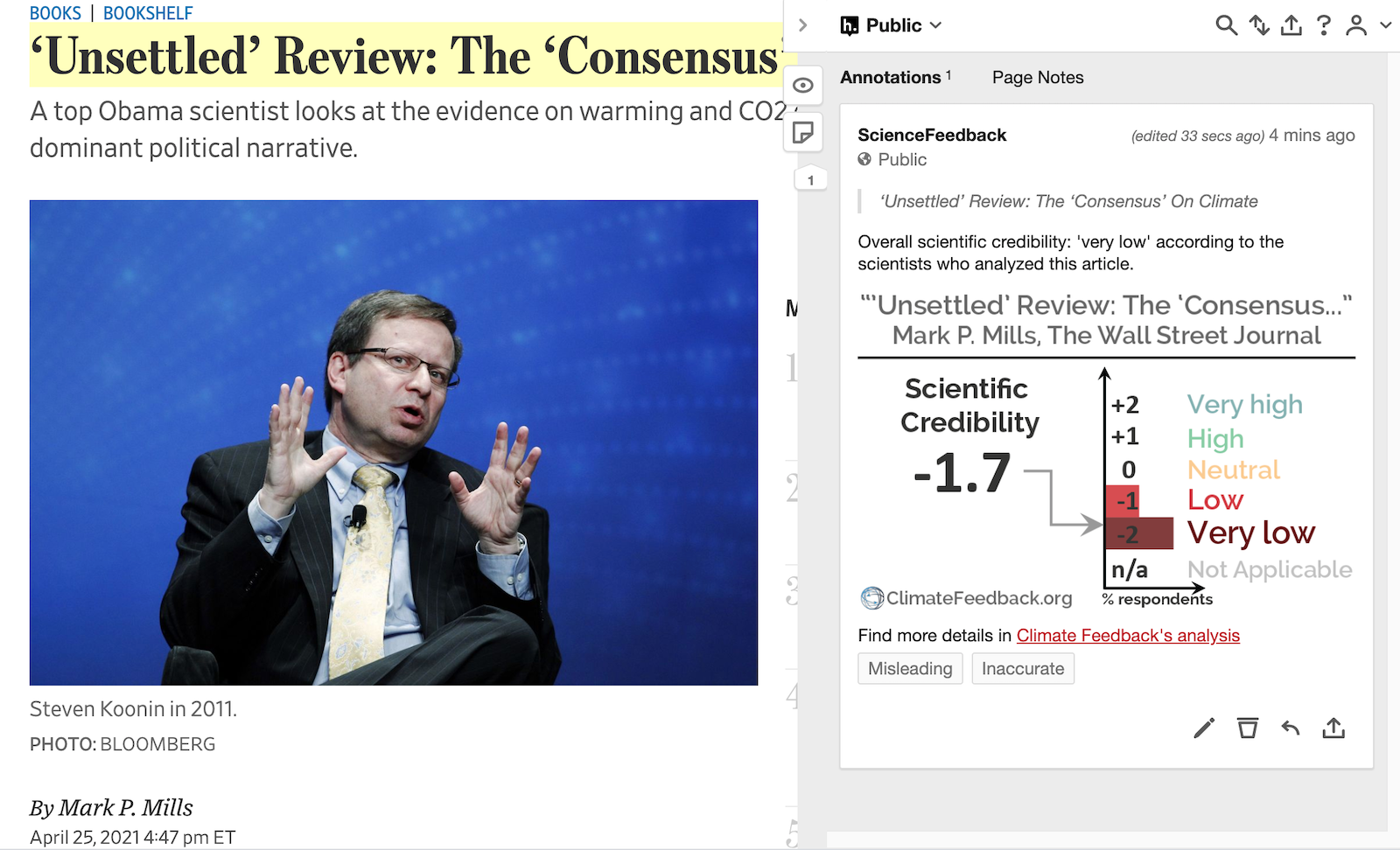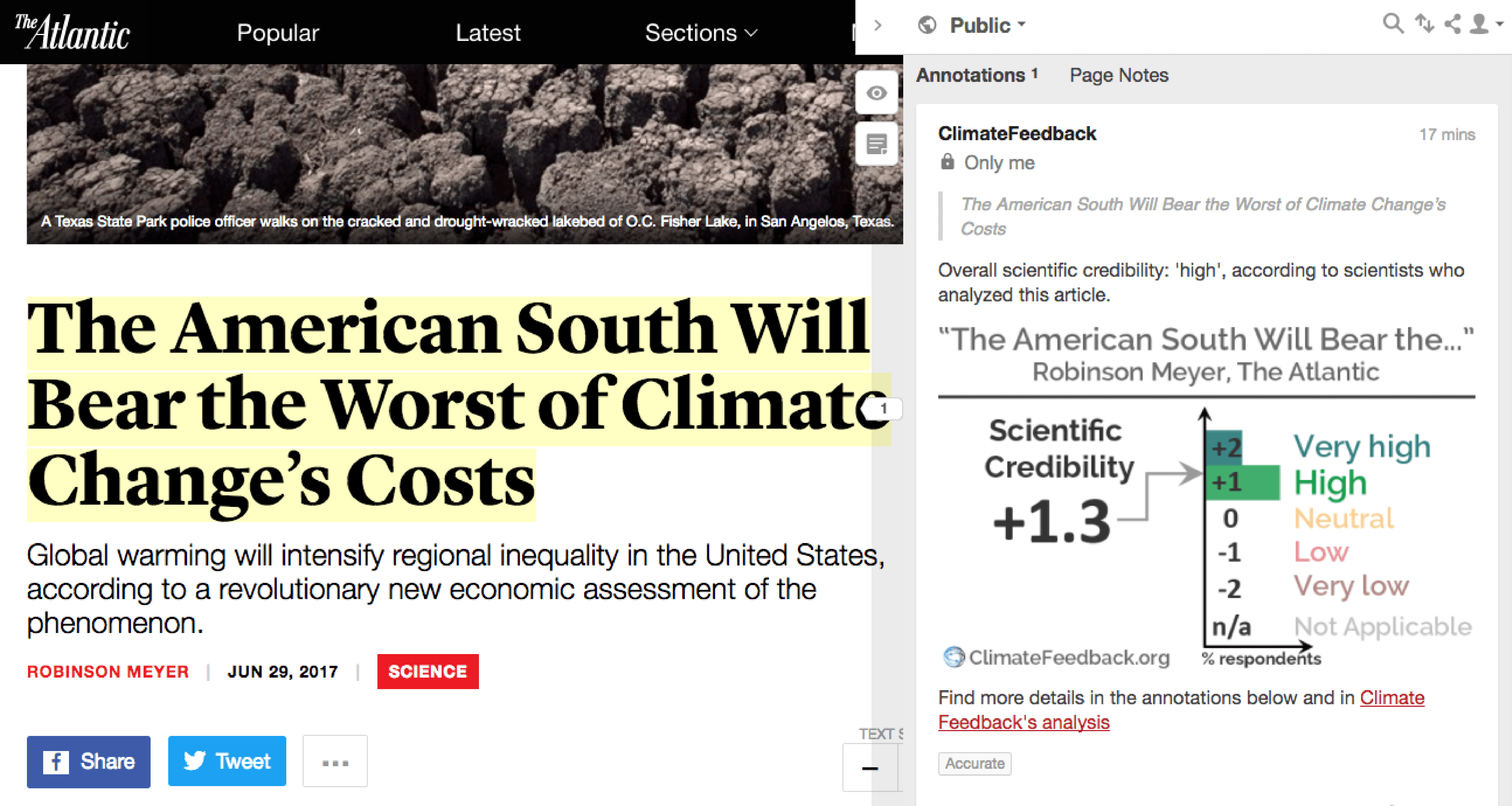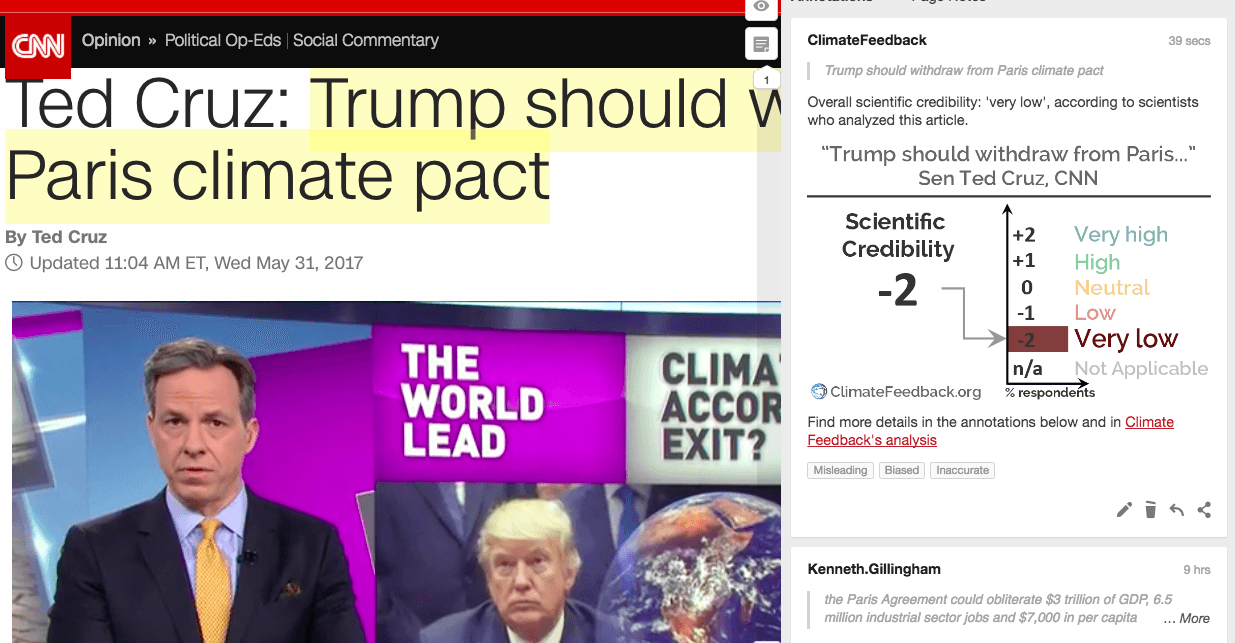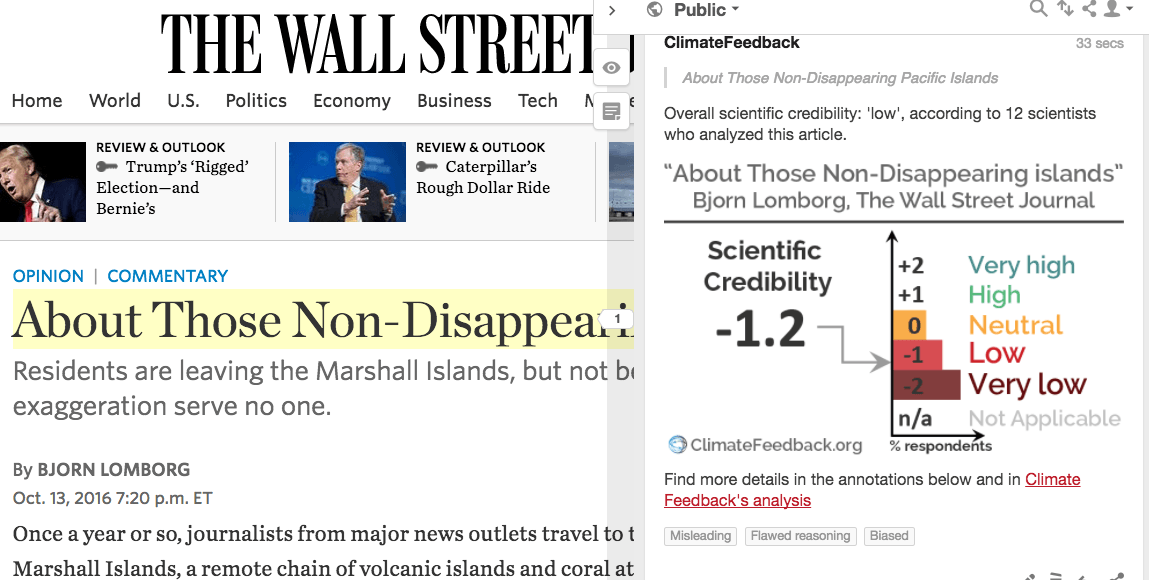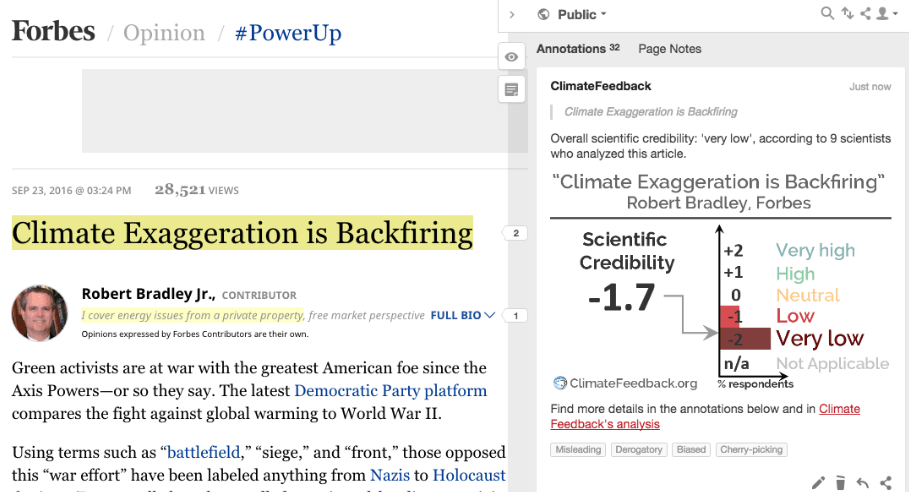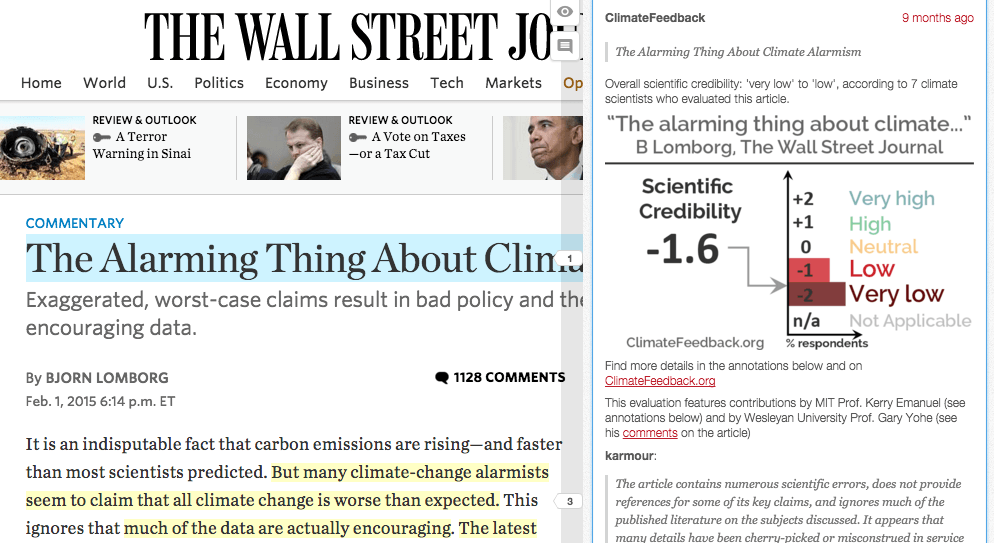.
Gary Yohe
Professor of Economics and Environmental Studies, Wesleyan University
Expertise: Guest analyst - Climate change economic impacts
Details:
ARTICLES REVIEWED
Wall Street Journal article repeats multiple incorrect and misleading claims made in Steven Koonin’s new book ’Unsettled’
in The Wall Street Journal, by Mark P. Mills
— 03 May 2021
Scientists who reviewed the article found that it builds on a collection of misleading and false claims. For instance, Koonin states that “Greenland’s ice sheet isn’t shrinki...
The Atlantic accurately reports on study of the economic impacts of continued climate change in the US
in The Atlantic, by Robinson Meyer
— 03 Jul 2017
This story in The Atlantic by Robinson Meyer describes a new study on the distribution of economic impacts that result from continued climate change in the United States. The study...
In Paris Agreement op-ed, US Senator Ted Cruz misrepresents the costs and benefits of reducing greenhouse gas emissions
in CNN, by Senator Ted Cruz
— 31 May 2017
Sen. Cruz’s article cites a single report that assessed only the costs of climate actions, relying on a series of assumptions that maximized those estimated costs, and that exclu...
Analysis of “About Those Non-Disappearing Pacific Islands”
in The Wall Street Journal, by Bjorn Lomborg
— 17 Oct 2016
"This article is very interesting because it exemplifies a highly-misleading rhetorical practice that is effective, frequently used, but not easily recognized by the public: "palte..
Analysis of “Climate Exaggeration is Backfiring”
in Forbes, by Robert Bradley Jr.
— 29 Sep 2016
"This picking of quotes that are convenient for Robert Bradley Jr.'s narrative while ignoring what most climate scientists say is one of the most used rhetorical tools of this piec..
Analysis of “The Alarming Thing About Climate Alarmism”
in The Wall Street Journal, by Bjorn Lomborg
— 10 Feb 2015
"Tries and fails to make a convincing case for why humans need to worry about climate change less than they currently do."

